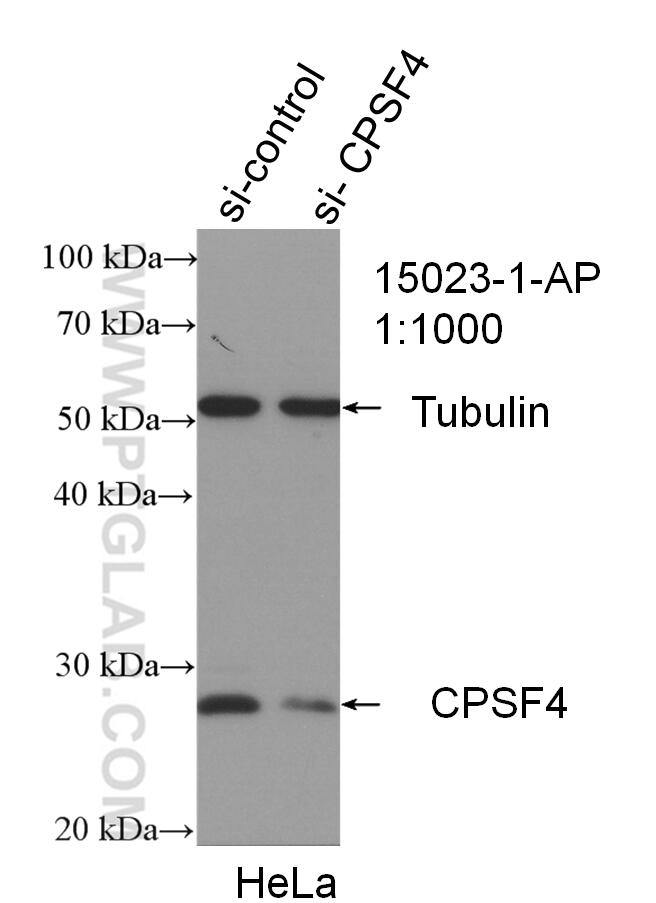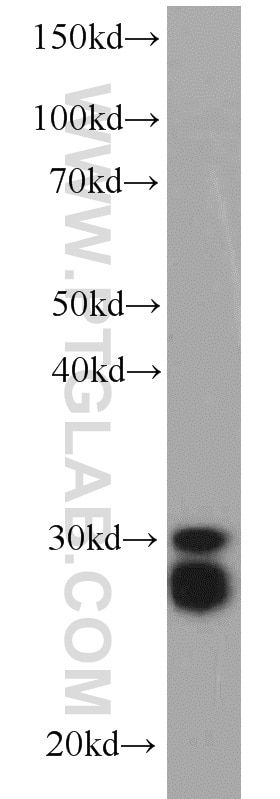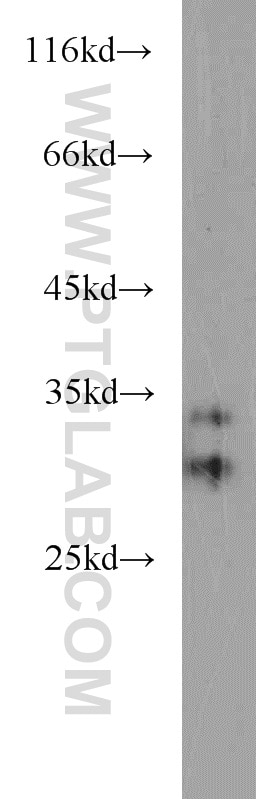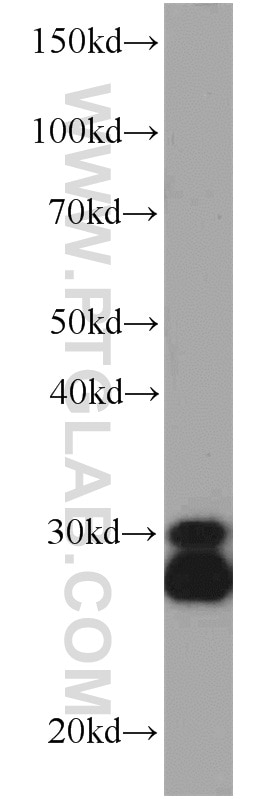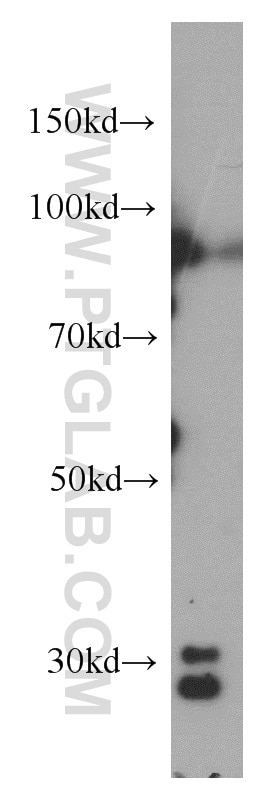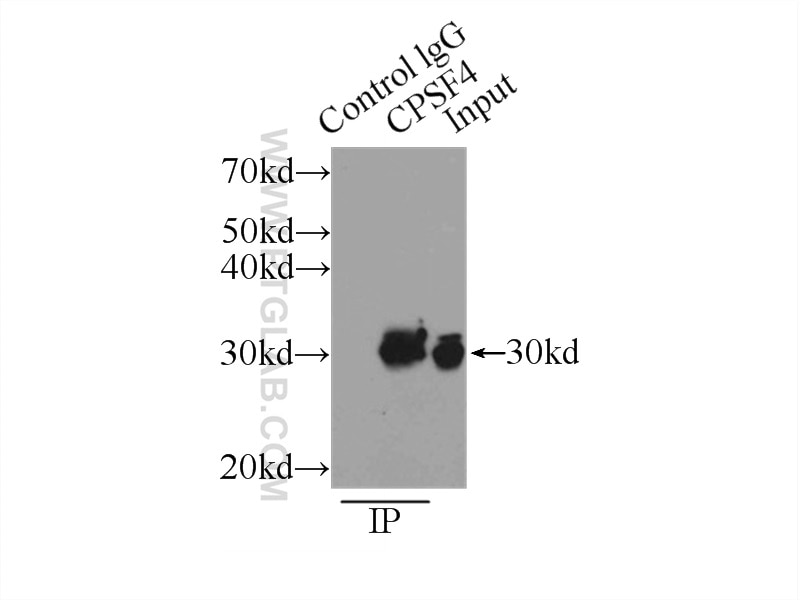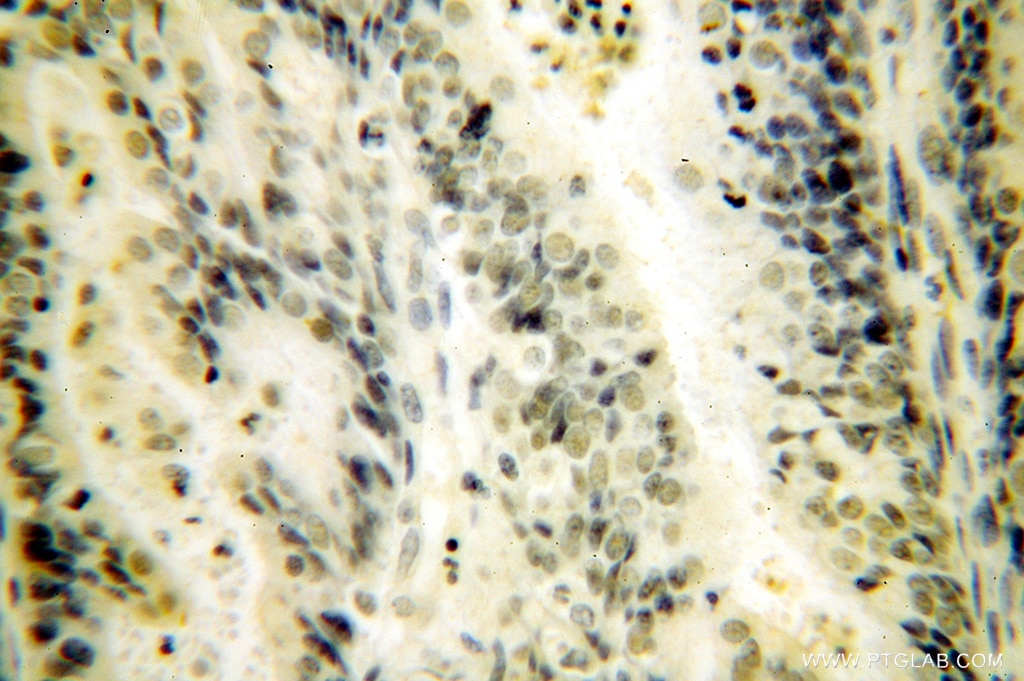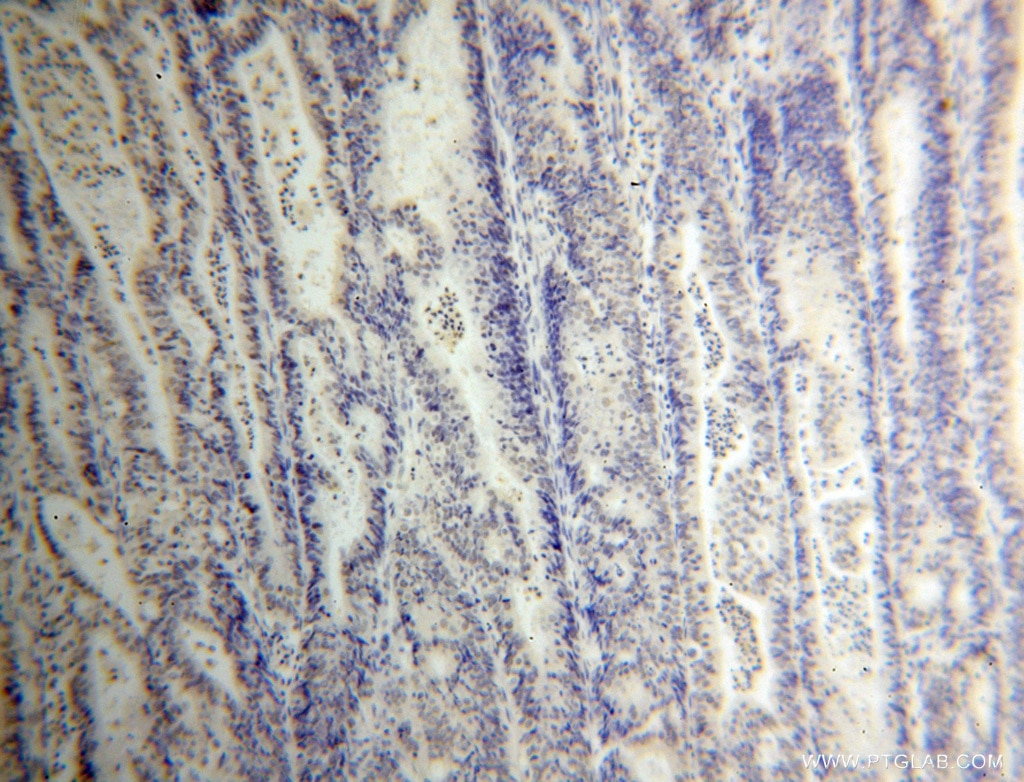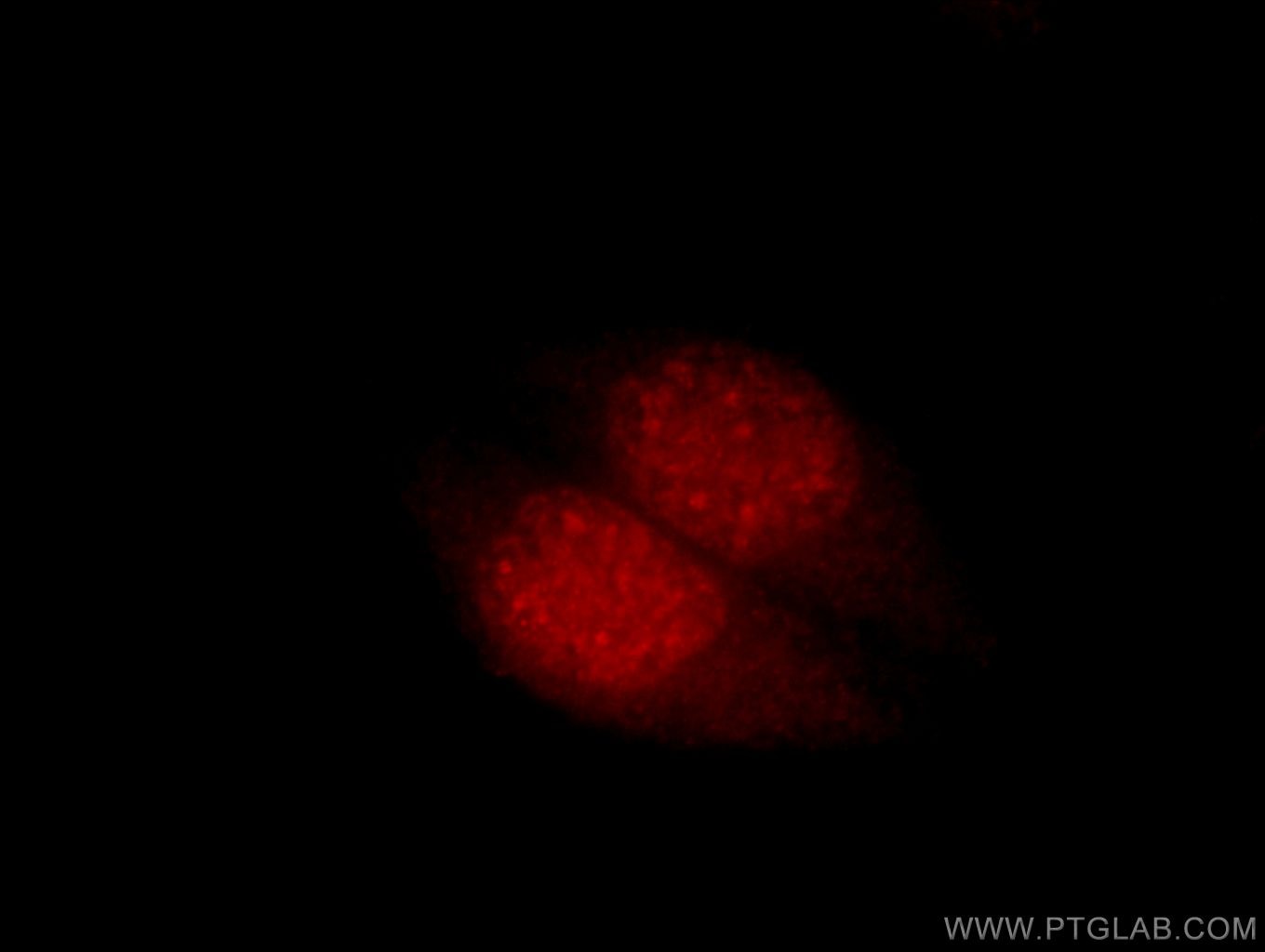- Phare
- Validé par KD/KO
Anticorps Polyclonal de lapin anti-CPSF4
CPSF4 Polyclonal Antibody for WB, IP, IF, IHC, ELISA
Hôte / Isotype
Lapin / IgG
Réactivité testée
Humain, souris et plus (1)
Applications
WB, IHC, IF/ICC, IP, ELISA
Conjugaison
Non conjugué
N° de cat : 15023-1-AP
Synonymes
Galerie de données de validation
Applications testées
| Résultats positifs en WB | cellules Jurkat, cellules HEK-293, cellules HeLa, cellules HepG2 |
| Résultats positifs en IP | cellules HeLa |
| Résultats positifs en IHC | tissu de cancer de l'endomètre humain il est suggéré de démasquer l'antigène avec un tampon de TE buffer pH 9.0; (*) À défaut, 'le démasquage de l'antigène peut être 'effectué avec un tampon citrate pH 6,0. |
| Résultats positifs en IF/ICC | cellules HepG2 |
Dilution recommandée
| Application | Dilution |
|---|---|
| Western Blot (WB) | WB : 1:500-1:1000 |
| Immunoprécipitation (IP) | IP : 0.5-4.0 ug for 1.0-3.0 mg of total protein lysate |
| Immunohistochimie (IHC) | IHC : 1:20-1:200 |
| Immunofluorescence (IF)/ICC | IF/ICC : 1:20-1:200 |
| It is recommended that this reagent should be titrated in each testing system to obtain optimal results. | |
| Sample-dependent, check data in validation data gallery | |
Applications publiées
| KD/KO | See 4 publications below |
| WB | See 10 publications below |
| IHC | See 5 publications below |
| IF | See 4 publications below |
| IP | See 1 publications below |
Informations sur le produit
15023-1-AP cible CPSF4 dans les applications de WB, IHC, IF/ICC, IP, ELISA et montre une réactivité avec des échantillons Humain, souris
| Réactivité | Humain, souris |
| Réactivité citée | Humain, porc |
| Hôte / Isotype | Lapin / IgG |
| Clonalité | Polyclonal |
| Type | Anticorps |
| Immunogène | CPSF4 Protéine recombinante Ag7103 |
| Nom complet | cleavage and polyadenylation specific factor 4, 30kDa |
| Masse moléculaire calculée | 30 kDa |
| Poids moléculaire observé | 27-30 kDa |
| Numéro d’acquisition GenBank | BC003101 |
| Symbole du gène | CPSF4 |
| Identification du gène (NCBI) | 10898 |
| Conjugaison | Non conjugué |
| Forme | Liquide |
| Méthode de purification | Purification par affinité contre l'antigène |
| Tampon de stockage | PBS avec azoture de sodium à 0,02 % et glycérol à 50 % pH 7,3 |
| Conditions de stockage | Stocker à -20°C. Stable pendant un an après l'expédition. L'aliquotage n'est pas nécessaire pour le stockage à -20oC Les 20ul contiennent 0,1% de BSA. |
Informations générales
The mature 3-prime ends of cellular mRNAs are producted by endonucleolytic cleavage of the primary transcripts, followed by polyadenylation of the upstream cleavage products. The cleavage and polyadenylation specificity factor (CPSF) has a essential role in pre-mRNA 3-prime end processing in that it is required in both the cleavage step and subsequent poly(A) addition [PMID: 9651582]. CPSF4 is a component of the cleavage and polyadenylation specificity factor (CPSF) complex, whose other components are CPSF1, CPSF2, CPSF3 and FIP1L1.
Protocole
| Product Specific Protocols | |
|---|---|
| WB protocol for CPSF4 antibody 15023-1-AP | Download protocol |
| IHC protocol for CPSF4 antibody 15023-1-AP | Download protocol |
| IF protocol for CPSF4 antibody 15023-1-AP | Download protocol |
| IP protocol for CPSF4 antibody 15023-1-AP | Download protocol |
| Standard Protocols | |
|---|---|
| Click here to view our Standard Protocols |
Publications
| Species | Application | Title |
|---|---|---|
Cell Rep LINC00921 reduces lung cancer radiosensitivity by destabilizing NUDT21 and driving aberrant MED23 alternative polyadenylation | ||
Mol Oncol CPSF4 activates telomerase reverse transcriptase and predicts poor prognosis in human lung adenocarcinomas.
| ||
Cancer Lett Cleavage and polyadenylation specific factor 4 targets NF-κB/cyclooxygenase-2 signaling to promote lung cancer growth and progression.
| ||
Mol Oncol CREB-binding protein regulates lung cancer growth by targeting MAPK and CPSF4 signaling pathway. | ||
Int J Biol Macromol Key pituitary miRNAs mediate the expression of pig GHRHR splice variants by regulating splice factors. | ||
Biochim Biophys Acta Mol Cell Res Cleavage and polyadenylation specific factor 4 promotes colon cancer progression by transcriptionally activating hTERT. |
